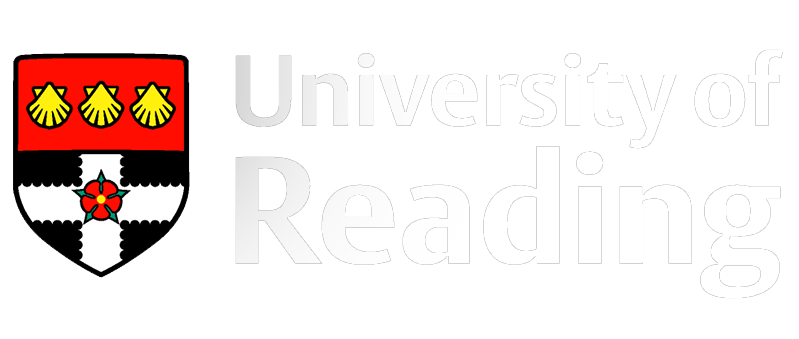
We are accepting applications for October 2025 entry. Please apply as soon as possible.
The University is home to more than 23,000 students from over 150 countries and 4,000 staff.
A world leader in climate science and winner of the Queen’s Anniversary Prize. The Universities School of Mathematical, Physical and Computational Science was awarded the Athena Swan Silver in 2023, in recognition of good employment practices in relation to women working in science, engineering and technology.
Research is divided into four broad themes: Agriculture, Food and Health; Environment; Heritage and Creativity; and Prosperity and Resilience.
- Ranked 1st in the People & Planet University League 2023/24.
- Named Sustainable University of the Year 2025 in The Times and The Sunday Times Good University Guide 2025.
- First ever winner of the Times Higher Education Outstanding Contribution to Environmental Leadership award 2023.
- Ranked top 30% in the QS World University Rankings in 2024.
- In excess of 70 Global partners.
Why choose Reading
- Close working relationship with leading weather and climate organisations such as, UK MET. Office, ECMWF, NCAS and NCEO
- Scenic campus with beautiful gardens, woodlands, and a lake
- Centrally located with fast access into London and Southampton
- Vibrant campus life
- Excellent PhD facilities with dedicated PhD offices
- Guaranteed graduate residential accommodation
Potential PhD projects
-
What drives non-linear dynamical, climate systems in the prescence of synergistic inputs?
Many parts of the climate system like the overturning circulation and extent of sea ice exhibit non-linear interactions; multiple variables combine producing an effect distinct from their individual influences. Disentangling direct and indirect influences, and their relative contributions, is vital to understanding system dynamics. This project will develop novel, causal models for such complex attribution tasks in climate sciences.
Project Partner: Centre for Computational Science and Mathematical Modelling (CSM), Coventry University & Universidad Iberoamericana -
In search of black swans: can climate models simulate the most extreme possible heat waves?
Recent extreme heatwaves have been more extreme than what was previously considered possible, even under changing climate. Are these surprises due to limited data on extremes? We will combine advanced numerical and statistical methods to augment the data on extremes, to investigate the most extreme possible heat waves.
Project Partner: National Centre for Atmospheric Science (NCAS) -
The signal-to-noise problem in weather and climate forecasts.
A puzzling phenomenon, the“Signal-to-Noise Paradox (SNP)”, has been observed in climate forecasts: reality appears to be more predictable than the forecasts are suggesting. This project will use machine learning to analyse the SNP statistically. Furthermore, potential dynamical mechanisms for the SNP will be identified using simplified climate models.
Project Partner: European Centre for Medium-Range Weather Forecasts (ECMWF) -
Improving the representation of uncertainty in climate-change predictions
Predicted changes in climate, both from statistical models using past observations and from physical climate models, are increasingly found to be underestimating observed changes. This project will examine current statistical practices in climate-change science, identify potential issues and develop a Bayesian framework to better quantify uncertainty in climate-change predictions. Project Partner: National Oceanography Centre (NOC) -
Machine Learning Approaches in Bayesian and Ensemble Data Assimilation
Data assimilation (DA), the process of combining model predictions with observations, is essential for weather forecasting. This project will focus on exciting prospect of developing novel, more effective DA algorithms via the use of machine learning, with the potential for significantly enhanced weather forecasts.
Project Partner: Alan Turing Institute -
Can we improve past climate state estimates using more recent observations?
Earth system reanalyses are model-data reconstructions of recent climate changes using atmosphere, ocean, land surface and cryosphere observations. These currently only use “forecasting” data assimilation methods. You will develop new algorithms to project observations backwards in time, improving consistency of past climate states based on more recent and complete datasets.
Project Partner: National Centre for Earth Observation (NCEO) -
Longer Time Steps for Weather and Climate Prediction
The latest generation of weather and climate models have timestep restrictions where extreme weather leads to strong winds and strong updrafts. This increases the cost of the model. This project will explore implicit time stepping to remove the restrictions and hence reduce the carbon footprint of weather and climate prediction.
Project Partner: UK Met Office -
Large ensembles of machine learning forecasts for advanced nonlinear filters in atmospheric data assimilation
Recently, machine learning (ML) weather forecasting models have shown deterministic forecast skill approaching that of physics-based models, at a small fraction of the computational cost. This provides the opportunity to create very large ensembles of ML forecasts, with the potential to improve data assimilation (DA), the process of optimally combining forecasts and observations to improve the accuracy of weather predictions.
Project Partner: National Centre for Earth Observation (NCEO) -
Studying Rare Events in Climate Change and Sustainable Environment more recent observations?
Rare and extreme events are getting more common and causing severe consequences due to climate change. This PhD project is aimed at developing advanced statistical sampling and multiscale computer simulation methods to investigate rare events and their transition dynamics in complex systems related to weather, climate and environmental sustainability.
Project Partner: Warwick University -
Data Assimilation of atmospheric and marine tracers – how good are we and how good can we be?
New approaches to combining modelpredictions with observations (Data Assimilation) will be developed for transport-diffusion models, which describe e.g. the distribution of atmospheric or marine pollutants. The project will employ advanced methods of machine learning and analyse the performance of the developed algorithms on a rigorous basis. Project Partner: National Centre for Earth Observation (NCEO)
-
Thermal Rossby Waves and North Atlantic Climate Variability: Theory, Modelling and Prediction
In the North Atlantic region, decadal changes in weather and climate are linked to slowly changing ocean temperatures. The student will test the hypothesis that the these temperature changes are caused by slowly moving thermal Rossby waves, using theory, idealised ocean models and state-of-the-art high resolution climate prediction models.
Project Partner: National Oceanography Centre (NOC) -
Can Artificial Intelligence forecasts produce the correct probability of occurrence of a weather event?
Recently developed weather forecasts powered by Artificial Intelligence (AI) are now competitive against ‘classical’ physics-based forecasts. A remaining key question is whether an AI-based forecasting system is capable of exhibiting similar sensitivity to initial conditions as the weather itself. This project will investigate this question by analysing a hierarchy of models, from simple toy models to more complex atmospheric models, with the aim of improving AI-based probabilistic forecasting.
Project Partner: National Centre for Atmospheric Science (NCAS, St Andrews) -
Refining the potential to predict catastrophic changes in ocean circulation using stochastic differential equation modelling
Predicting potential tipping points in the Atlantic Meridional Overturning Circulation (AMOC) is an exciting application of stochastic differential equation (SDE) modeling. This PhD project aims to analyze SDE models using simulated climate data, explore the sensitivity of predictions to noise, and refine early warning indicators for potential abrupt circulation changes.
How to Apply?
- Send Your Application
- Provide Supporting Documents
- Assessment & Interviews
- Get An Offer
APPLY NOW
Lorem ipsum dolor sit amet, consectetur adipiscing elit. Ut elit tellus, luctus nec ullamcorper mattis, pulvinar dapibus leo.
